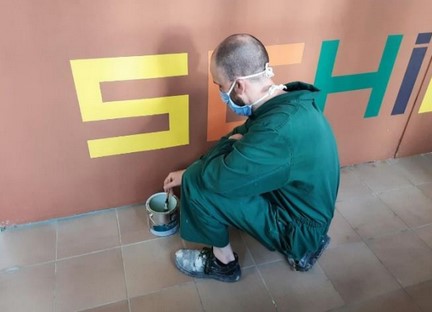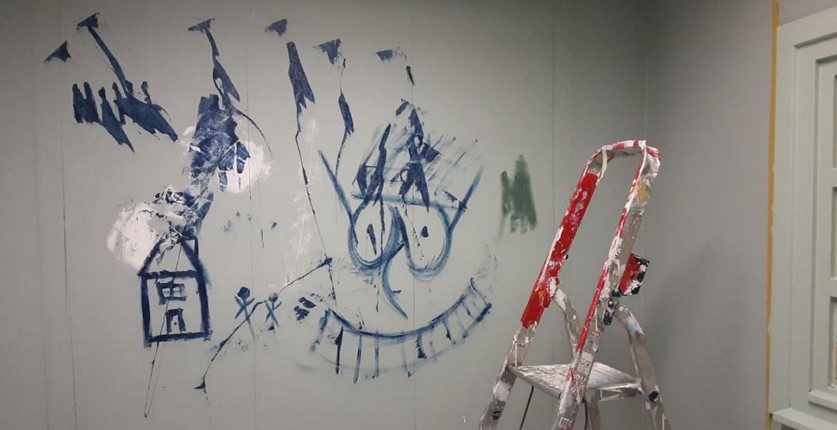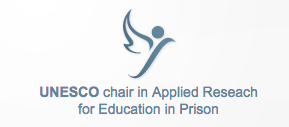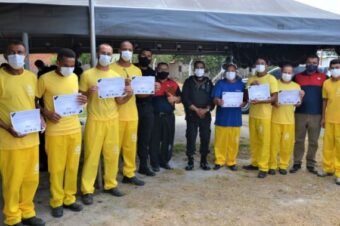January 2022, Wortel penitentiary centre, Flanders.
November 2022. J.M. starts a new life, lives in a new house, and has a new job. He is 41 years old; he has a lot of life ahead of him. It could be the story of any of us. However, the life he has left behind is anything but conventional. At the age of 21 he entered prison with a 20-year sentence. Now he awaits the end of his time in captivity and the chance to start afresh.

We spoke to him to find out how he has spent half his life in prison and how important it has been to be able to study in prison.
- Q: Can you introduce yourself?
J.M., 41 years old. I was born and raised in the province of Antwerp. I had a difficult childhood and parents who didn’t care enough about me. I made several bad decisions and one day I made a fatal mistake that landed me in prison. In November 2022 I will be released from prison after 20 years. I entered when I was 21 and now I am 41. I was out for two years, but I didn’t respect my parole and had to go back in. It’s not easy to respect the conditions when you don’t have any professional support nearby. I’ve become a man in here, and I assure you it’s not easy.
- What did you study?
I finished primary school and then I studied vocational training in construction and electricity. There’s always work in that. Unfortunately, at 21 I went to prison. In Hoogstraten Prison I followed the plasterer’s course. In 2007, when I was released on parole, I worked for a year on a training contract with an internship.

- Q: You have invested a significant part of your time in prison in training. Can you explain why?
Right now, I’m following a painting and decoration course, every day from 8 to 11:30. At the end of the school year I will have another speciality and an official diploma recognised by the state.
I have studied several courses here. All the courses are taught by teachers who also teach in an official, public adult school. We receive the same diploma as the students who attend classes at CVO EduKempen, the largest adult school in the region. This diploma does not state that I have attended courses in prison, only my name and my date and place of birth.
Many inmates never attend courses, either because they are lazy or because they don’t receive enough information. Sometimes they don’t even speak the language.
I knew I had a long sentence and I had to think about what would be best for me and how I could prepare myself to survive in here and outside when I get out. Taking courses is the best option for that and here you have enough time. The support network in Belgium after the period of detention is poor, there are no means for everybody, so you often have to find your own way. You must prepare yourself for when you are free, but when you have been locked up for 20 years that is not at all obvious.
I would recommend everyone to go to school while you are in prison because it is necessary if you want to rebuild your life when you get your freedom.
Also, the world has changed so much… everything is arranged online with a smart phone. In 2002 we had a Nokia 6610 in our pocket…
- Q: How do you face your life from November onwards?
After 20 years I’m going out without too many expectations because I don’t want to be quickly disappointed. I want to have a normal life and enjoy my two young children. Have a drink on a terrace, fall in love and take the little one to the park. People don’t realise how much life is worth, how much their freedom is worth. To get out of prison well you must be very strong, not everyone makes it. In here you lack two very important things besides freedom, peace and quiet and love. You can have a girlfriend on the outside, but it is impossible to maintain the relationship, the same goes for your own children.
For 20 years everything has been organised for me. The prison regime decides what time I get up and go to bed, my breakfast, lunch and dinner, the days I shower and how many minutes I can stay under water. The longer you are locked up, the more difficult it is to communicate with people because you lack human contact. They don’t treat you like a citizen, in here you are just another number. However, as soon as I step out of prison, I have to go back to being an autonomous citizen with little or no help from the government. There are halfway houses, but there are so few that hardly anyone is entitled to them. Luckily, I can count on my brothers and sisters.
J., thank you for this interview. I wish you all the best from November on and may this be the last time we see each other in prison.
Thank you very much, I hope so, it won’t be easy, but I am determined to go on.
Ana Ferrando Benedicto
editors@epea-sc





